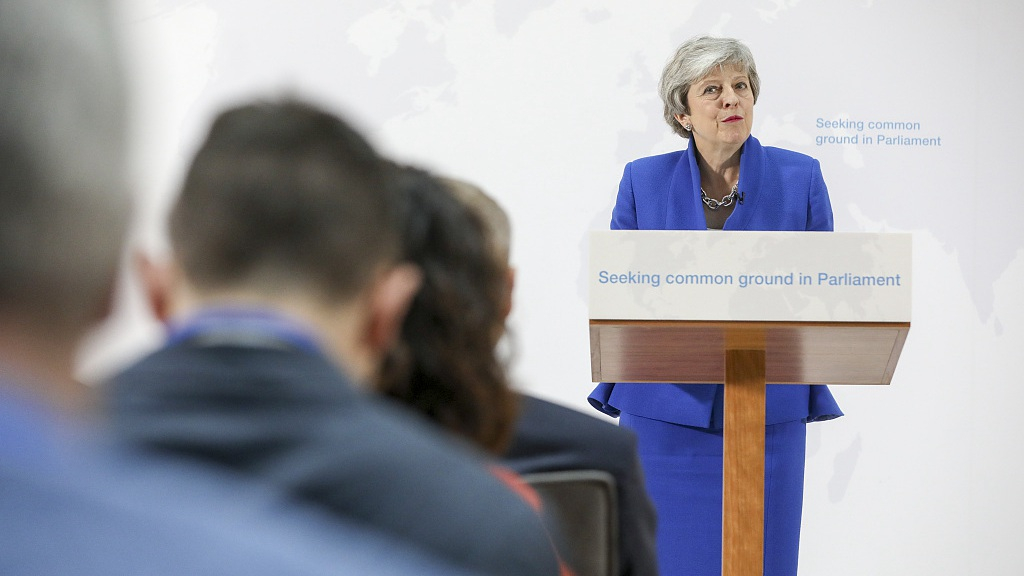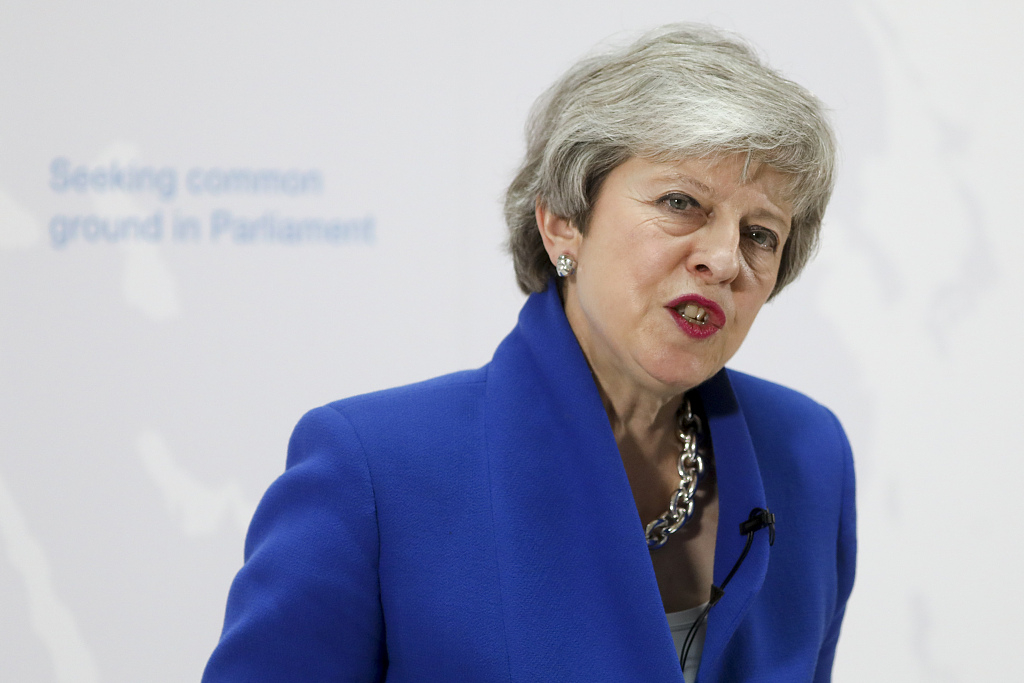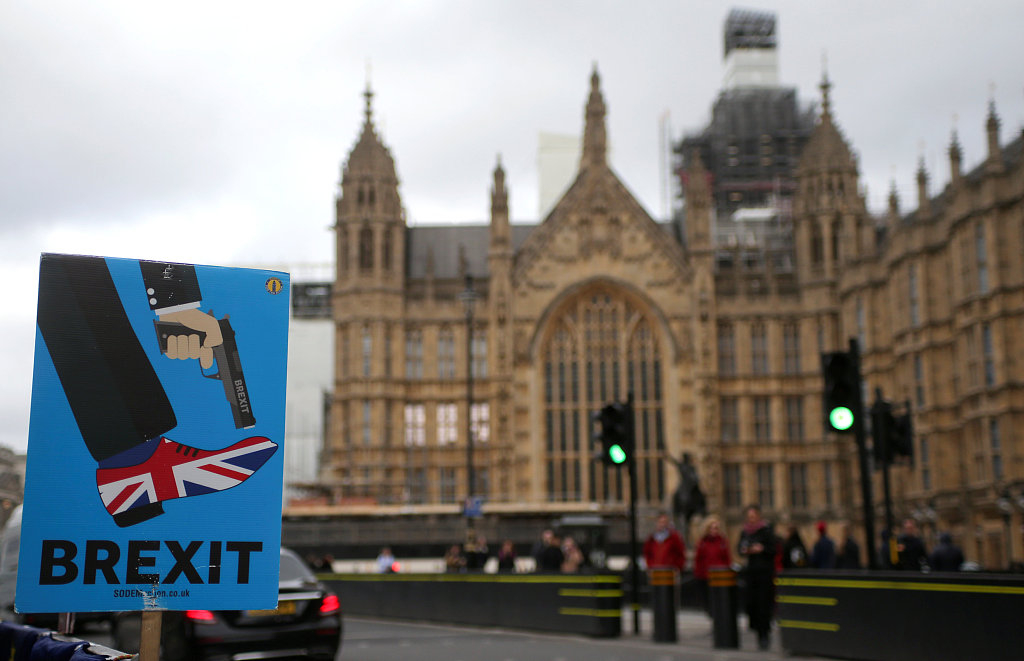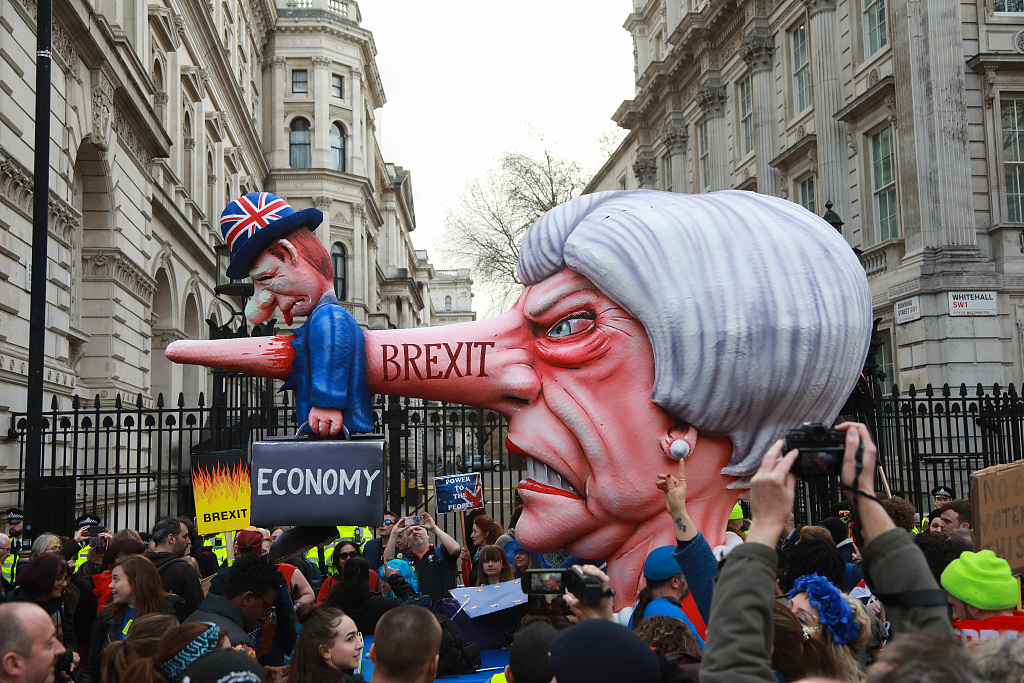
Opinion
12:05, 22-May-2019
May's final roll of the dice on Brexit
Chris Deacon

Editor's Note: Chris Deacon is a postgraduate researcher in politics and international relations at the University of London and previously worked as an international commercial lawyer. The article reflects the author's opinion, and not necessarily the views of CGTN.
British Prime Minister Theresa May appeared in front of journalists on Tuesday afternoon to set out her last Brexit gambit, which she hopes might stand a chance of pushing Brexit over the line once and for all.
With the deal May negotiated for the UK's withdrawal from the European Union (EU) having been voted down in the British House of Commons multiple times, there are few avenues still open to get the deal passed.
Her government is planning to bring forward in the UK Parliament the legislation which would legally implement this deal – the Withdrawal Agreement Bill, commonly termed the "WAB" – in early June. In May's own words, this is "one last chance" to deliver Brexit – or, at least, to deliver her Brexit deal.
The initial plan was to introduce this bill only after the government had secured the consent of Members of Parliament (MPs) to May's deal; however, voting on the WAB involves voting on more or less the same issues in any event.
May's Conservative Party has recently been in talks with the main opposition Labour Party to try to achieve some compromise that would allow her deal to pass, but these talks have now broken up with no agreement. Nevertheless, the prime minister is attempting to go over the top of the Labour leadership to appeal directly to MPs with the WAB vote.

Theresa May, U.K. prime minister, delivers a speech setting out a new proposal for her Brexit deal on May 21, 2019, in London, Britain. /VCG Photo
Theresa May, U.K. prime minister, delivers a speech setting out a new proposal for her Brexit deal on May 21, 2019, in London, Britain. /VCG Photo
At the Tuesday press conference, May made clear her view that anyone not voting in support of the WAB at this stage was voting to "stop Brexit." She knows full well, however, that this is not a view shared by many MPs and, therefore, attempted to sweeten the proposal by putting forward a "new Brexit deal" with 10 points.
Many of these apparently new promises were not new at all, but some are of note: Firstly, May confirmed that both workers' rights and environmental protection regulations would be protected such that the UK would always meet or exceed the EU's own rules on these issues, even after Brexit.
Secondly, May committed to the UK following certain EU rules on goods and agricultural products so as to try to ensure no disparity between Northern Ireland and Great Britain and to ease border checks so that so-called "just-in-time" supply chains will be less negatively affected.
Finally, May also stated that, should MPs pass the WAB, there would be a guaranteed vote for them to decide whether or not the Brexit deal should be put to a public referendum (although the exact terms of such a second referendum remain unclear).

An anti-Brexit placard is seen outside the Houses of Parliament on March 13, 2019, in London, Britain. /VCG Photo
An anti-Brexit placard is seen outside the Houses of Parliament on March 13, 2019, in London, Britain. /VCG Photo
This is a particularly symbolic move by the Prime Minister, who has repeatedly and forcefully opposed the holding of any second referendum. Votes on this issue have already been held in Parliament; however, they have been forced on the government as amendments to bills rather than put forward by the government itself.
Despite these potential sweeteners, the prospects for May's deal and the WAB still appear grim. To begin with, many of these offers are not as generous as they initially sound.
For example, with regard to workers' rights and environmental protection, the UK is already a leader in the EU in this area, generally exceeding EU requirements and setting precedents before other member states catch up. It seems unlikely, therefore, that the UK would slip behind the EU's level of regulation just because it had left the bloc.
And with regard to a second referendum, it would almost certainly be the case that MPs would seek to amend the WAB with the requirement to hold a second referendum in any event. So, while symbolic, May's promise actually adds little of substance.

A giant puppet of Teresa May outside Downing Street No 10. on March 23, 2019, in London, Britain. /VCG Photo
A giant puppet of Teresa May outside Downing Street No 10. on March 23, 2019, in London, Britain. /VCG Photo
Unsurprisingly, therefore, MPs on all sides immediately reacted to the speech with disdain. Brexit supporters are angry that the prime minister appears to have "watered down" a Brexit deal they already thought would not result in the UK genuinely leaving the EU.
On the other side, Remain supporters see little reason to support the deal of a prime minister who appears to be on her way out of power imminently, even if a vote on a second referendum is promised.
Peter Kyle MP, for example, wrote on Twitter "the prime minister just made a whole load of promises on behalf of the next prime minister. That's likely to be someone who has repeatedly voted against the very things she's announcing. No thanks."
As has become commonplace in the current Brexit mess, May is on the receiving end of attacks from both sides, with nothing resembling a compromise on the horizon. Her WAB appears doomed and, therefore, so does her premiership.
This was May's final gambit to try to "save" (her version of) Brexit, but it is highly unlikely to work.
(If you want to contribute and have specific expertise, please contact us at opinions@cgtn.com.)

SITEMAP
Copyright © 2018 CGTN. Beijing ICP prepared NO.16065310-3
Copyright © 2018 CGTN. Beijing ICP prepared NO.16065310-3